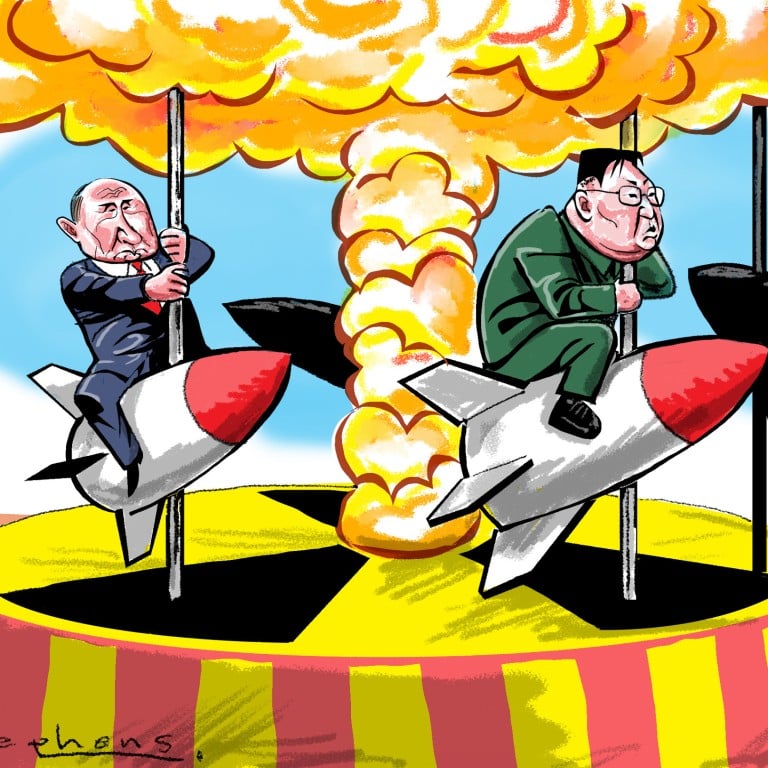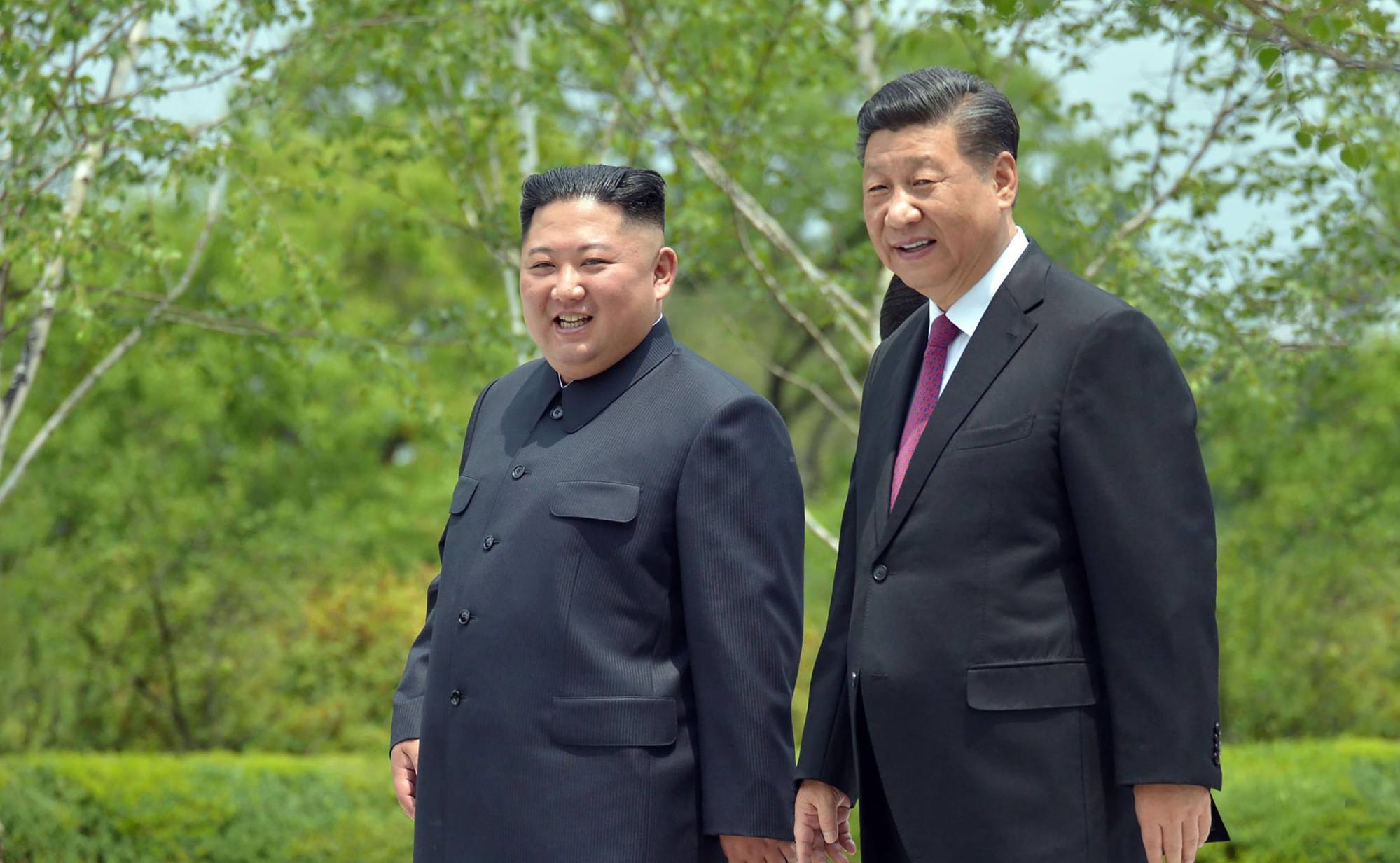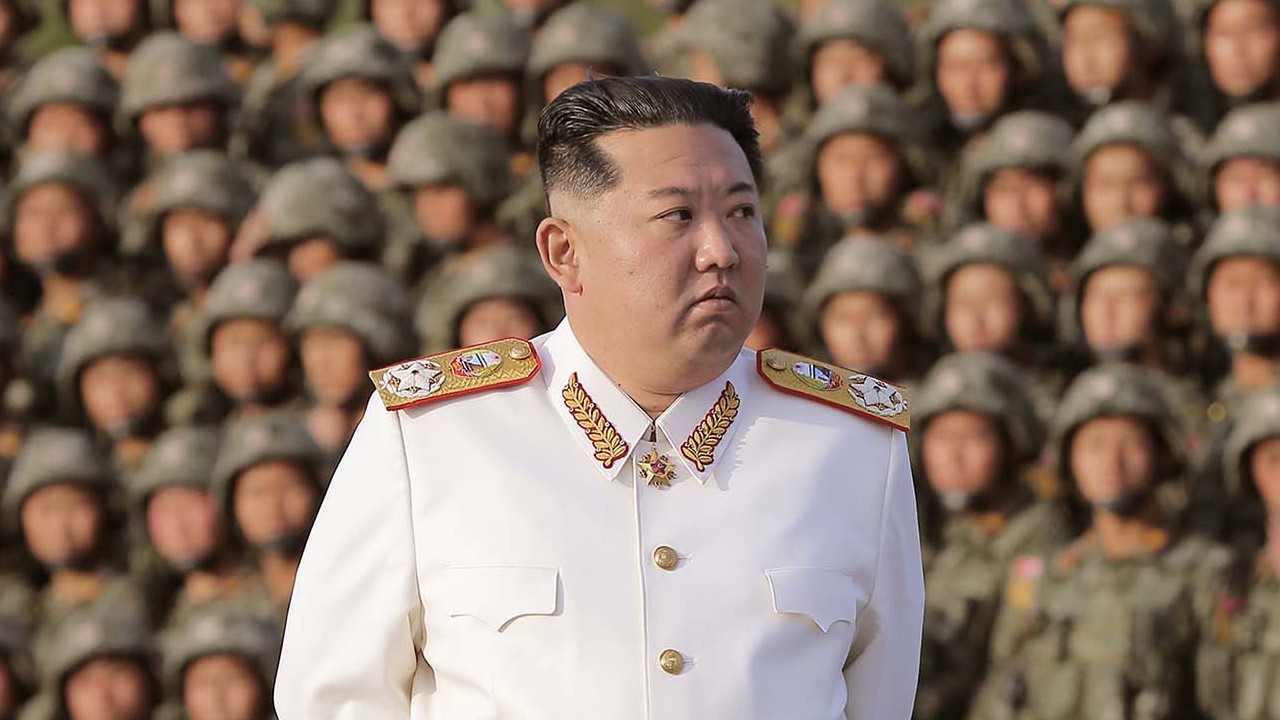
China has one good policy option as a nuclear-armed North Korea cosies up to Russia
- China could insist on the pre-war status quo or embrace a trilateral alliance with Moscow, but either option would hurt its strategic aims, including the one-China policy
- Or it, along with major states, could offer an economic reform and aid deal to persuade North Korea to give up its nuclear weapons for a brighter future
The Russian invasion of Ukraine has ravaged facilities in major cities and displaced millions of refugees. It has also caused a geopolitical polarisation, splitting the world into two blocs: South Korea, Japan and most European countries have joined the United States to counter China, North Korea, Belarus and Russia.
Secondly, Pyongyang supports Russia’s latest annexations of Ukrainian territories and recognises Donetsk and Luhansk as independent states.
Pyongyang’s belligerent stance, taken under these geopolitical circumstances, undermines the stability of Northeast Asia and poses a serious dilemma to China in optimising its geopolitical objectives.
North Korea’s Kim Jong-un must be talked down before game of dare escalates
Faced with North Korea’s new role, China has three policy options. The first being that it could maintain the pre-war status quo.
Pyongyang’s new stance calls for intensified armed provocation. In 2017, following North Korea’s sixth nuclear test, China and Russia endorsed the US initiative to escalate sanctions against the country. Should North Korea conduct a seventh nuclear test, China would have to join any US-led initiative at the UN Security Council supporting a severe escalation of sanctions – or abstain from the vote.
Worrying revival of interest in nuclear weapons in China, South Korea
Furthermore, should the US, South Korea and Japan formally establish a trilateral alliance, it would invigorate their military power and result in more frequent joint military exercises. This would impede China’s strategic objectives and thwart Beijing’s efforts to create an environment conducive to its one-China policy.
Finally, if China were to enforce sanctions on North Korea, it would further exacerbate hardship and instigate even greater economic instability. This instability will aggravate the Pyongyang regime and reflect back on the outside world in the form of greater armed aggression. This is an option that will deepen the uncertainty of Pyongyang’s survival.

As a second option, Beijing could embrace North Korea as a nuclear state and formally establish a trilateral strategic alliance with Moscow. But such a decision would also impinge upon China’s geostrategic objectives.
Russia’s defeat in Ukraine is a distinct possibility while North Korea uses nuclear weapons to wage hostile foreign policy as a means of survival. Such an alliance would only attract retaliation from the US and its allies, including Japan and South Korea, leaving Beijing isolated.
Ukraine war is teaching world hard lessons about weaponised interdependence
These provisions would imply that North Korea would be trading its nuclear weapon programme for a bright future. Should such a deal be consummated, it would pave the way for permanent peace and stability in the region, joint economic prosperity, and the curtailment of US military presence on the Korean peninsula.
It would also create an environment conducive to the achievement of the one-China policy. Success would redefine US-Chinese relations, enhance China’s prestige on the international stage and promote world peace.
Dr Chan Young Bang is the founder and president of KIMEP University, principal investigator at the DPRK Strategic Research Centre, and a former economic adviser to the first president of Kazakhstan, Nursultan Nazarbayev


